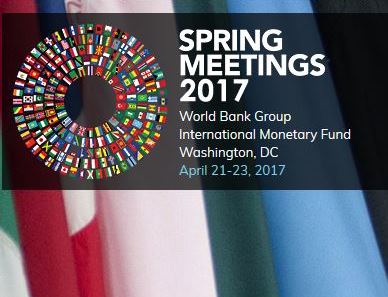Never has the world been more anxious about the future, at least of one of an interdependent or global economy than in 2017.
Perhaps there are a number of justifiable reasons for such fears: with the United Kingdom clearing up its apartment at the European Union, an American leadership that is rather skeptical or even hostile towards the very idea that she once championed: one of global world with literally no boundaries in trade, investments, among others.
Actually, probably the most popular quote today in the US is “America first†and has long gone past mere rhetoric to real-time policies of the President Trump administration.
First, the US pulled out of the Trans Pacific Partnership, followed by the travel ban that so prominently earned the rage of businesses across the US and around the world.
In addition, increasing hostility between the present-day major economic powers towards each other as witnessed in the current US attitude towards China and vice versa, has threatened entrenched interest of developing nations that almost helplessly depend on smooth economic relations between these leading economies.
Furthermore, foreign businesses who invested in the UK as a former leader of the European Union are persistently anxious about their post Brexit future. The consequence being a reluctance to expand, or an increasing look out for new places to pitch their tent and a net-loss in jobs and business prospects for UK workers and firms from all over the globe.
Africa, particularly some of its leading economies like Nigeria, South Africa and Ghana have had their own piece of the cake.
Nigeria for instance, while striving to emerge from a rather persistent economic recession still faces big challenges like rater low crude oil prices at the world market (it major foreign exchange earner), a long overdue power crisis, etc.
Ghana also, against the backdrop of an ambitious economic plan set by the President Akufo Addo- led administration, is threatened by an IMF projects debt-to-GDP estimated at over 71% for this 2017 fiscal year, a cedi battling for resurgence against the dollar, rising domestic transportation cost as well as those of other basic commodities, etc.
It is under this economic atmosphere that the World Bank and IMF begin their 2017 spring meeting in Washington tomorrow (Friday 21/04) with the usual top agenda being: the global economy.
However, one could hardly miss the air optimism of the World Bank President, Mr. Jim Young Kim as he addressed a press conference that formally opened the session.
Speaking of the global economy, he said they would focus on creating “stronger economic prospects after years of disappointing economic growthâ€.
He further went on to assert that 2/3 of all jobs currently existing in developing nations will be wiped out by automation within the next few years hence, countries with the capacity must continue to embark on structural changes and all nations must seek “more innovative ways to reach the poor and make the world more securedâ€.
With an emphasis on capital & other resource mobilization, he expressed his confidence that both institutions, governments and other stakeholders across the globe would meet the goal of ending extreme poverty on earth by 2030.





